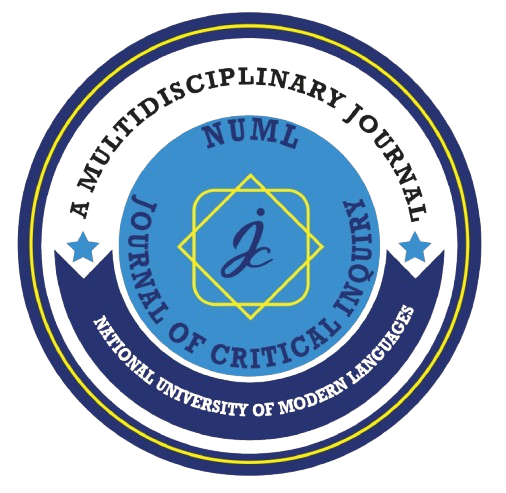The Development of Nominal Synsets for the Saraiki Language: A Corpus-based Analysis
Main Article Content
Abstract
This paper focuses on developing nominal synsets for the Saraiki language (SL), a lesser-studied language spoken in Pakistan. Nominal synsets are groups of nouns that share semantic characteristics and are crucial for natural language processing tasks such as information retrieval, machine translation, and text classification. The research aims to create Saraiki Nominal Synsets (SNS) using the Gurumukhi Punjabi WordNet. The study employs a hybrid approach, combining merge and expansion techniques for analysis and gathers data from PDF textbooks, online sources, and the Saraiki Wikimedia incubator. The collected data is limited to texts published between 2000 and 2019, and manually tagged using Antconc 3.4.4.0 wordlist due to the unavailability of a tagger for the Saraiki Language. The study builds a 2.2 million Saraiki word corpus and a list of 750 nouns, then categorizes and semantically organizes the Saraiki Nominal Synsets based on the list of Saraiki nouns. To identify and classify nouns in SL based on their semantic properties, a corpus-based approach is utilized, and nominal synsets are constructed using a combination of manual and automatic methods. Evaluating the quality of the synsets involves comparing them to existing lexical resources and conducting a semantic similarity analysis. The results demonstrate the effectiveness of the approach in capturing semantic relations among nouns in SL and producing synsets useful for various NLP applications. Overall, this study contributes to the development of linguistic resources for lesser-studied languages and provides valuable support for researchers and developers working on natural language processing tasks involving SL.






